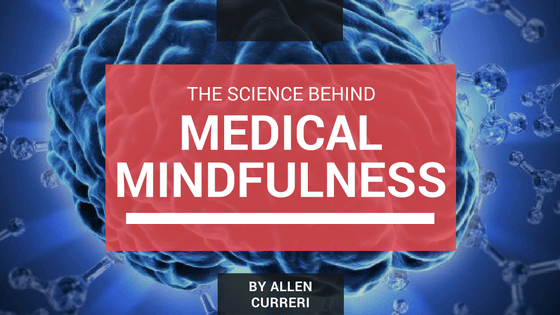It’s ironic that although we rely on doctors to care for our health, they are rarely able to devote the same time to their own — least of all their mental health. We’ve talked before about the incredible stresses that doctors face every day, stresses that can’t help but take a toll on anyone’s wellness, no matter how competent you are. It isn’t not only a hardship for the professionals who care for us, though, but also one for patients who rely on a doctor’s sharp observational skills and clear-headed decision making to make the best possible call, every single time.
Many doctors find it difficult to believe in mindfulness as a method of managing this constant paradox. They’ll tell you it’s all a matter of experience and training. And they’re not wrong — that’s exactly what we want in our doctors. But with so much resting on a mere judgement call, isn’t mental training is just as important as physical?
I’m a man of science. I’m studying at one of the best research universities in the country, and my many years in the pharmaceutical industry taught me to demand facts: tangible, measurable, replicable results.
The type of mindfulness I’m advocating for doctors has more to do with critical thinking and carefully focused attention than sitting cross-legged and saying “Om,” but no matter how you implement it, the facts are in: mindfulness produces real, significant effects to satisfy even the most exacting data-driven sceptic.
It might have started as part of Buddhist meditation, but mindfulness now has a strong pedigree as part of many successful (and secular) therapies and healthy strategies.
Practitioners have long sworn on the benefits, but MRI imaging scans can now confirm that some extraordinary is going on in the brains of the mindful. By practicing simple thought awareness strategies, people are able to profoundly reshape the brain around a new method of thought and perception — permanently.
MRIs have revealed that after practicing mindfulness for a mere eight weeks, participants’ amygdalas become smaller. That is, a part of the brain associated with fear, anger, and the knee-jerk “fight or flight” response to stressors actually shrinks when you spend time being mindful.
At the same time, the prefrontal cortex, the brain structure that houses our highest order functioning (logic, awareness, concentration, decision making) thickens and becomes denser with mindfulness practice.
In short, our primal, stress-driven instincts seemed to weaken and be replaced by more thoughtful responses. You have the ability to literally reshape your brain through the power of your own conscious thought.
Perhaps most incredible of all, these changes are permanent. The results were seen in participants even while they were not in a meditative state, although the brain scans of long-time mindfulness experts look similar in a neutral state to the brain of a novice who is currently meditating. Their intentional internal focus actually becomes a consistent personal trait, which means practicing mindfulness a little each week could produce notable benefits all the time — including in the hospital.
It’s an incredible realization. With repetition and practice, we can choose which abilities and traits of our own brains to strengthen and grow, and which to minimize. The things we practice become habit, become a part of our bodies and minds. So doesn’t it just make sense that a doctor’s practices should help them become focused, acutely aware of the present, cool under pressure, and calm in the face of pain and distress?
I certainly think so, and I think that doctors and patients alike will be glad of that mental training when things get tough.


